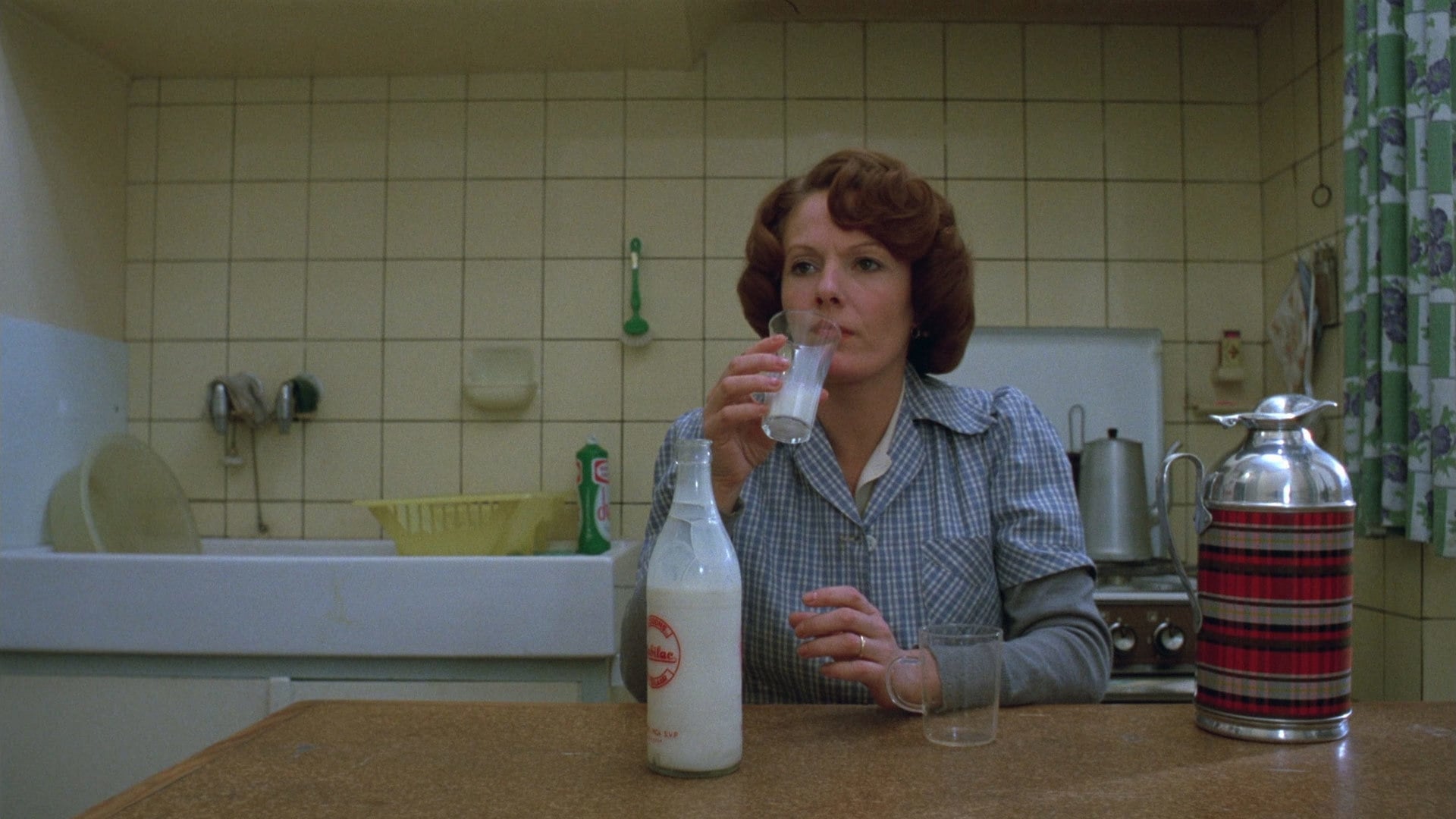
She makes the bed. She peels and boils the potatoes. She prepares the coffee and drinks milk. She cleans the small apartment she shares with her son. She takes a bath and services a john. Then she goes to bed, wakes up and does it all over again.
So it goes for three days in the life of Jeanne Dielman (Delphine Seyrig), a middle-aged single mother who lives at 23 quai du Commerce, 1080 Bruxelles. It’s fitting that writer-director Chantal Akerman used both name and address for her title, because the more specific, the more universal. Could that be why critics voted Jeanne Dielman, 23, quai du Commerce, 1080 Bruxelles the greatest film of all time in Sight & Sound’s once-a-decade poll?
Akerman’s film — playing CU’s International Film Series on March 10 as part of the Women Making Movies celebration — is as specific as they come. She and cinematographer Babette Mangolte watch with patience and unwavering interest as Dielman performs her chores. The camera remains stationary, and the average shot length is about a minute (standard Hollywood shot lengths are mere seconds, sometimes less).
Akerman and Mangolte are inviting us to observe and consider. What thoughts run through this woman’s mind as she prepares the potatoes? As she sits at the kitchen table? As she washes the dishes? It’s possible that you might settle on an answer within the first 10 or 20 seconds of a shot — cinema has taught us to be fast processors. What, then, do you think about for the next 40 or 50 seconds as the camera stares unblinkingly at Dielman? Do you revise your initial thought? Expand on it? Notice something else in the frame, like those dishes on the drying rack in the back? Or do you think about something else entirely? Your own life? Maybe even what you’re going to make for dinner that evening?
I can’t help but think of my mother and grandmother while watching Jeanne Dielman — particularly the endless but necessary tedium of preparing, making and cleaning. The face of Dielman as she sits at her table is Peggy Lee’s “Is That All There Is?” in a picture. But then I think of my own life, pulling dishes out of the cabinets for a meal, making the meal, cleaning up afterward, putting the dishes back in the cabinet and then returning a few hours later to do it all over again. How much of my life is spent in this cycle? How often have I sat at my table and stared off into the middle distance, wondering: “Is that all there is?”
I’m burying a pretty big lead here. And not just the whole “greatest film of all time” moniker but the moment when something does happen in Jeanne Dielman that shatters the monotony of preparing, making and cleaning; something that upsets the potatoes and pushes Dielman to an action well beyond the everyday.
Akerman was 24 when she made Jeanne Dielman, a stunning fact considering the control and focus she brings to the film. Her age invites comparison to Orson Welles, who was 25 when he made Citizen Kane. Both films are interested in subjects older than their creators, and both films are notable for such accurate observations about those subjects.
Yet another thing, a really big thing, connects the two: greatness. Every decade, the British magazine Sight & Sound invites critics to cast ballots for the 10 greatest films of all time. From 1962 to 2002, the answer was the same. Citizen Kane. A canon was formed, not just around Kane but the other titles that comprised the top 10 — each poll more or less indistinguishable from the next. Then, suddenly, there was a change. And when the results were announced in 2022, the top spot belonged to Jeanne Dielman.
How did Jeanne Dielman, which tied for 35th place in the 2012 poll with Metropolis, Psycho and Sátántangó, jump to number one? The answers are numerous, but the obvious one revolves around the gender reckoning many critics have had in the past 10 years. The canon is overwhelmingly male — and white and straight and all sorts of other things — and there has been a growing interest of late in women who make movies. That probably made Jeanne Dielman, the highest charting film from a female filmmaker in the 2012 poll, a focus of sorts. Now couple that with Akerman’s suicide in 2015. Let’s face it: If you’re an artist, they don’t love you until you’re dead.
Jeanne Dielman is a masterpiece. It’s over three hours long and contains scant amounts of dialogue and minimal action. Your mind will drift a lot, but where it drifts is half the experience. So many movies you see will tell you everything you need to know, and with such volume that you’ll have little time to consider anything else. I love those movies, too, but I also love that Jeanne Dielman allows space for all those thoughts to zip in and out. It’s quite an experience — especially when you get to that ending.
ON SCREEN: Jeanne Dielman, 23, quai du Commerce, 1080 Bruxelles. 2 p.m. Sunday, March 10, International Film Series, CU Boulder - Muenzinger Auditorium, 1905 Colorado Ave. Tickets here.
